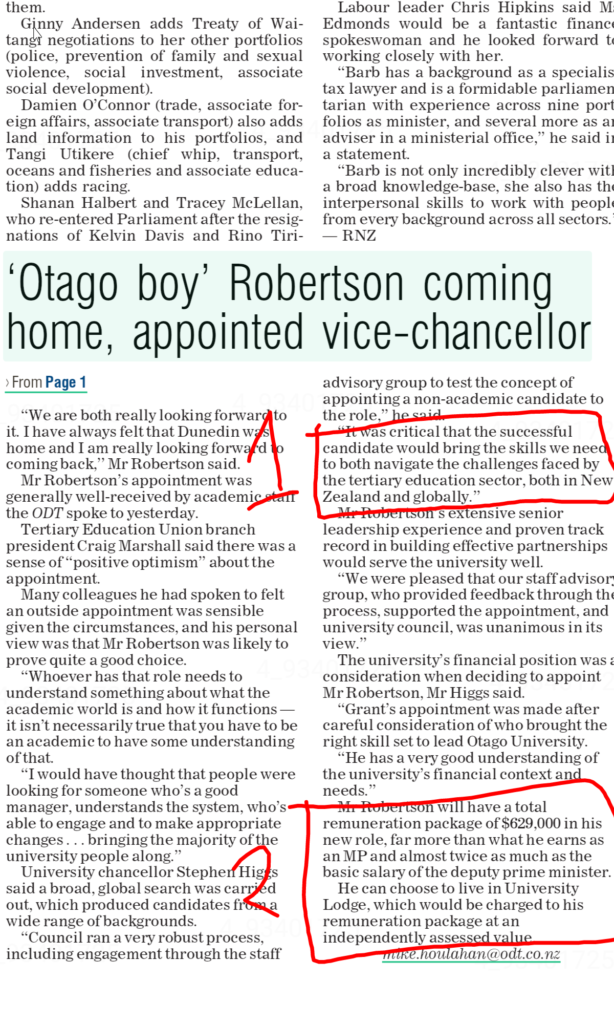I read somewhere that, regardless of the political environment, the top 1-5% of a society will always succeed.
They might be the generals in Pakistan, Myanmar or some other dictatorship. Or American Ivy-Leaguers, with their path mapped out by family and familiarity connections. In England, they’re the Ox-bridge or Eton brigade.
Regardless of how you might try to politically level the fields to destroy privilege, these 1-5% of people always seem to come out on top. For example, Russia’s oligarchies were previously high ranking communist officials, moving seamlessly between communism and capitalism.
Trump feels the little people
People like Trump tap into the feeling, cynically exploiting these common perceptions while people ignore his elitism. He’s a billionaire created from a millionaire family, appealing to a population who feel exploited by Elites, the Chinese, and weakened by “free-loading” countries and immigrants.
The Economist (Feb 17, 2024) calls this style of politics National Conservative, and notes it is invasive within Hungary, Italy, France, Israel, Germany, The Netherlands, Poland, as well as America.
The uneducated deplorables
And standing back, it all sounds very conspiracy theory and gets labeled as such. Or dismissed as envy or greed.
People who think like that are uneducated, or have some sort of chip on their shoulder. Much is made of Trump’s white-collared workers whose skills are labelled as stuck in an industrial past that has moved on without them.
Except… there are so many examples where “Elites” just seem to triumph leaving the Meek to Inherit the Shit.
Grant Robertson: Worst Minister of Finance Ever
In February, the Honourable Grant Robertson announced his retirement from parliament to become the Vice-Chancellor of the University of Otago.

Grant leaves a legacy of fiscal and money laxity that has financially crippled New Zealanders collectively.
And his punishment? A $629,000 salary, twice as large as was his deputy PM salary, and a house that looks like this:

My Beef
He and the Ardern government were racially divisive, economically in-astute, and fiscally irresponsible. He did nothing for addressing the tax burden created by Fiscal Creep, where incomes inflate into higher tax brackets. He was all in favour of unemployment insurance schemes that would have added another business tax to employers. His government locked in Minimum Wage Agreements which would have returned New Zealand back to the old days of unionised activity.
His government did nothing for our roads, and blew millions on trains for Auckland that never appeared. The key elections planks they gave us, like Kiwibuild, never happened, yet he was one of the proponents all set for charging us capital gains tax.
He spent, and spent and spent like it was someone else money, and now we the Taxpayer are paying the cheques.
Our roads are crowded, our health system clogged, our children illiterate, our towns and cities unsafe because of crime.
Grant’s other charges
- Him and the Ardern government made housing significantly more unaffordable for New Zealanders.
- He personally oversaw the substitution of fiscal responsible budgets, for budgets focused on “Wellbeing” that yakked on about some weird mystic Four Capitals of Wellbeing, and we a complete distraction away from the quantity and quality of govenrment services, and the value for money of the government’s spend.
- He loosened the Reserve Bank’s focus from inflation control to considering full employment, and ushered in the error of mixed signals into monetary policy, and decision-making by committee without monetary policy experience.
- He over saw the Reserve Bank’s intitiatives into Helicopter Money with its Large Scale Asset Purchase programme, which pumped $78 billion of cheap money into the economy, single-handedly inflated houses by 40% as a consequence, and resulting in a further $8.7 billion debt for the taxpayer as interest rates inevitably increased.
Competitive Recruitment Process
It sounds like Otago University did actually run a competitive recruitment process (see below).

So, how did a non-academic without education sector experience get the CEO role at a leading New Zealand University? What skills did Grant bring that beat out the global competition on a meritocracy-based competitive employment process?
Grant brings to the table, “the skills we need to navigate the challenges”.
Grant is a navigator.
Grant is a builder.
But most of all, he’s a political insider with cabinet-level government experience in allocating taxpayer funding to non-market organisations that are inherently left-leaning, and which operate in non-competitive sectors of the backward New Zealand economy. ie, he “… understand[s] something about what the academic world is and how it functions…”
And that’s elitism, New Zealand style: cushy positions for the political privileged.
.. and the politically unconnected meek shall inherit the shit.

Pingback:For fuck’s sake… – Over the Beer Mug